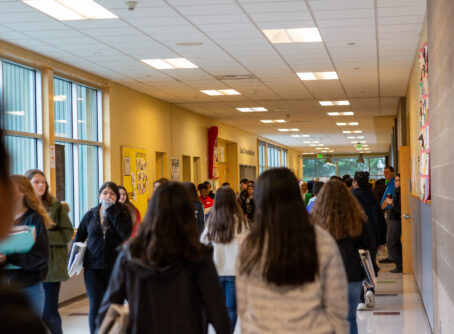CPJ’s archives contain decades of articles, policy papers and commentary from CPJ’s distinctive perspective, designed to facilitate research by students and scholars. If you are interested in reading these resources, contact CPJ for more information.
Students and Scholars
The Hatfield Prize Awards
The Hatfield Prize is designed to foster and advance Christian scholarship on today’s most complex social challenges. Awarded annually to three student-faculty pairs from Council for Christian Colleges and Universities (CCCU) institutions, these financial prizes facilitate student-faculty research over the course of a semester and culminate in the publication of policy reports.
Internships
CPJ offers paid internships at our offices in Alexandria, VA. This formative educational experience encourages interns’ professional, spiritual, and intellectual development at the intersection of faith, public policy, and justice.
Shared Justice
Shared Justice is the leading online journal for Christian reflection on public justice, specifically crafted for college students and young professionals. This nonpartisan forum discusses the intersection of faith, politics, and justice and addresses the critical question: what does it mean to “do justice” as citizens in a diverse political community?
Political Discipleship
The Political Discipleship Guide from the Center for Public Justice is created for small groups and provides a practical approach to Christian citizenship and engagement with public justice.
Political Discipleship is designed to help small groups explore faithful, Christian citizenship by practicing citizenship together.
Articles

The best way to fight incarceration and recidivism is to keep people — especially students — out of carceral systems to begin with. We should not be unnecessarily policing schools and creating environments that are preparing kids for incarceration.

The Biden administration has issued a new regulation for foster care that is intended to ensure safe and appropriate care for LGBTQI+ children. States are supposed to comply with it by October 1, 2026.

